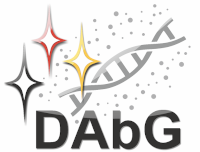Speaker
Description
Early cellular membranes may have emerged and survived harsh temperature, pressure, pH or ionic strength gradients, presumably occurring in diverse geological environments, such as pumice rafts, volcanic splash pools, submarine hydrothermal vents and subaerial springs [1-2]. A wide variety of thermotropic phases could appear in the amphiphilic membranes under these environmental conditions, thereby affecting the stability and functionality of the protocells. In this study, all-atom molecular dynamics simulations have been used to elucidate the effect of temperature on the properties of functionalized vesicle membranes. For this purpose, temperature changes from 358 K to 323K were established, based on the hypothesis postulated by Schreiber et al. [3]. A plausible prebiotic system was selected, constituted by a model membrane bilayer, an equimolar mixture of long-chain fatty acids and fatty amines, and short peptides, KSPFPFAA, previously identified in an evolution experiment [4]. Peptides tend to form the largest spontaneous aggregates at higher temperatures, therefore enhancing the pore formation process and the eventual transfer of essential molecules in a prebiotic scenario. Analyses also suggest that the peptide-amphiphilic molecules interactions affect the stability and the structural properties of the plausible prebiotic vesicular system.
References
1. F. Westall, K. Hickman-Lewis, N. Hinman, P. Gautret, K.A. Campbell, J.G. Bréhéret, F. Foucher, A. Hubert, S. Sorieul, A.V. Dass, T.P. Kee, T. Georgelin, and A. Brack, A Hydrothermal-Sedimentary Context for the Origin of Life, Astrobiology, 18 (3), 259, 2018.
2. E. Camprubí, J.W. de Leeuw, C.H. House, F. Raulin, M.J. Russell, A. Spang, M.R. Tirumalai, F. Westall, The Emergence of Life, Space Sci. Rev. 215, 56, 2019.
3. Ulrich Schreiber, Oliver Locker-Grütjen, Christian Mayer, Hypothesis: Origin of Life in Deep-Reaching Tectonic Faults, Orig. Life Evol. Biosph. 42, 47, 2012.
4. Christian Mayer, Ulrich Schreiber, María J. Dávila, Oliver J. Schmitz, Amela Bronja, Martin Meyer, Julia Klein and Sven W. Meckelmann, Molecular Evolution in a Peptide-Vesicle System, Life 8, 16 (2018).

